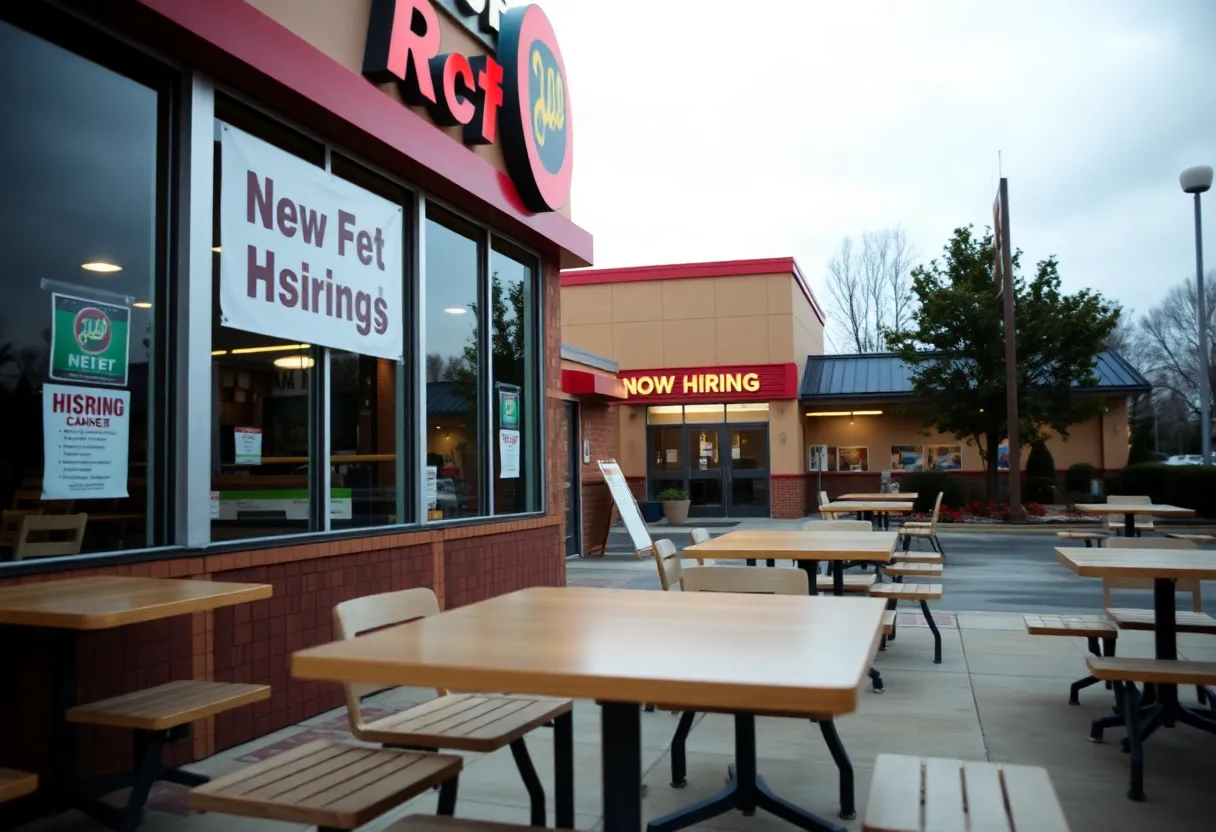News Summary
California’s fast-food industry has seen a loss of approximately 18,000 jobs, a 3.2% decline, following the implementation of a $20 minimum wage on April 1, 2024. A study from the National Bureau of Economic Research indicates that these job losses could have been avoided without the wage hike. While other states have experienced employment growth in the sector, California’s job figures have taken a downturn since the passage of AB 1228. The effects of the significant wage increase continue to spark debate regarding the balance between fair compensation and job availability.
California has experienced significant job losses in its fast-food sector following the implementation of a $20 minimum wage for workers in that industry. A new study from the National Bureau of Economic Research (NBER) shows that since the wage increase took effect on April 1, 2024, approximately 18,000 jobs, representing a 3.2% decline, have been lost.
The research conducted by economists Jeffrey Clemens, Olivia Edwards, and Jonathan Meer indicates that had the wage hike not occurred, these jobs would likely still be in existence. The findings reveal that while employment in California’s fast-food sector has contracted, other states in the U.S. have seen a mild increase of around 0.10% in fast-food employment during the same timeframe.
Prior to the establishment of the $20 hourly wage, California’s fast-food sector was experiencing growth comparable to the national trend. However, since the California Assembly passed AB 1228 in September 2023, which created the Fast Food Council with the authority to set and modify fast-food wages, the state’s employment figures have taken a downturn. The data indicates that employment fell between 2.3% and 3.9% in the fast-food sector following the new law’s enactment.
Background of Wage Increase
The $20 minimum wage marked a substantial jump from the previous rate of $16 an hour. Supporters of the increase, including California Governor Gavin Newsom, asserted that the measure aimed to improve wages and provide a stronger voice for fast-food workers. Governor Newsom highlighted the wage hike as a step towards achieving fair compensation in the fast-food industry.
However, the implications of this wage increase have drawn criticism. Opponents of the law argue that raising wages can have adverse effects on employment opportunities. They refer to historical examples of wage control measures that failed to produce the intended economic benefits, fearing similar outcomes in California.
Response to Job Losses
In reaction to the study’s findings, officials from Governor Newsom’s administration have challenged the conclusions drawn by the NBER. The deputy communications director, Tara Gallegos, raised concerns about the credibility of the research, suggesting it originated from a think tank purportedly known for disseminating misleading economic data. Gallegos also referenced a separate UC Berkeley study that pointed out wage increases of 8-9% for covered workers, asserting that these gains did not lead to negative employment outcomes for non-covered workers.
Additionally, the wage hike resulted in average menu price increases of only 1.5%, a figure that proponents of the law suggest reflects minimal impact on the cost of dining in fast-food establishments. It is worth noting that AB 1228’s effects did not extend to small fast-food chains with fewer than 60 locations, possibly mitigating the broader market’s response to the wage changes.
Wider Economic Trends
Despite the dramatic shifts within the fast-food sector, overall employment trends in California have continued to align with national patterns. The NBER study found that following the wage increase, median weekly hours for fast-food workers saw a reduction, resulting in significant annual income losses. This decline in hours worked further complicates the narrative around the wage hike, as the economic landscape for many fast-food employees has changed considerably.
As California moves forward, the implications of AB 1228 and the $20 minimum wage on employment in the fast-food sector remain a topic of intense discussion and analysis, illustrating the often complex relationship between wage policies and their economic impact.
Deeper Dive: News & Info About This Topic
- Fox Business
- Wikipedia
- Wall Street Journal
- Google Search: California minimum wage
- California Employment Law Report
- Google Scholar: California minimum wage impact
- USA Today
- Encyclopedia Britannica: minimum wage
- Reason
- Google News: California minimum wage increase

Author: STAFF HERE HOLLYWOOD
The Hollywood Staff Writer represents the experienced team at HEREHollywood.com, your go-to source for actionable local news and information in Hollywood, Los Angeles County, and beyond. Specializing in "news you can use," we cover essential topics like product reviews for personal and business needs, local business directories, politics, real estate trends, neighborhood insights, and state news affecting the area—with deep expertise drawn from years of dedicated reporting and strong community input, including local press releases and business updates. We deliver top reporting on high-value events such as the Hollywood Bowl summer concerts, the Hollywood Christmas Parade, film premieres at TCL Chinese Theatre, and festivals at the Magic Castle. Our coverage extends to key organizations like the Hollywood Chamber of Commerce and Visit Hollywood, plus leading businesses in entertainment, dining, and tourism that define the local economy. As part of the broader HERE network, including HERELosAngeles.com, HEREBeverlyHills.com, HEREAnaheim.com, and HEREHuntingtonBeach.com, we provide comprehensive, credible insights into Southern California's dynamic landscape.





